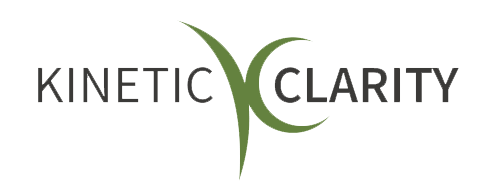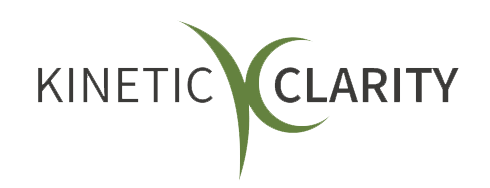Building Emotional Literacy: The Silent Language of Corporate Success
Let's start on a journey often overlooked in our fast-paced corporate lives: emotional literacy.

Hello, dear readers! Picture this: you're in a crucial meeting, and the air is thick with unspoken tension. Suddenly, one team member, with a simple yet empathetic gesture, diffuses the situation. That's emotional literacy at play - the silent language of success. Today, we will unwrap this gift and see how it can positively affect your professional world.
Understanding Emotional Literacy
Emotional literacy is about understanding, expressing, and managing our emotions and the emotions of those around us. It goes beyond recognizing feelings. It helps us navigate the complex web of human emotions in a healthy and constructive way. This concept is crucial in the corporate world, where decisions aren't just made with data and logic, but also with an understanding of the human element.
While emotional intelligence (EI) is a broader term encompassing overall emotional skills, emotional literacy specifically refers to our ability to communicate our emotions effectively. It's the vocabulary of our feelings. Imagine articulating exactly what you're feeling and why, and understanding when others do the same. That's the power of emotional literacy.
The Current State of Emotional Literacy in the Corporate World
The corporate landscape is gradually recognizing the value of emotions in the workplace. However, there's still a long way to go. Many still view emotions as a sign of weakness, something to be left at the office door. This outdated notion fails to see that harnessing emotions can be a powerful tool in enhancing teamwork, leadership, and overall workplace culture.
The absence of emotional literacy can lead to miscommunications, strained relationships, and poor decision-making. For instance, a leader who can't read the team's emotions might push them too hard, leading to burnout, or not enough, resulting in underperformance.
In fact, a study by TalentSmart found that emotional intelligence is responsible for 58% of performance in all types of jobs. This statistic highlights that EI is not just a nice-to-have skill but a crucial component of job performance across various roles and industries.
The Benefits of Emotional Literacy for Professionals
Embracing emotional literacy can revolutionize your professional life. Let’s explore how:
Decision-Making and Conflict Resolution
Emotional literacy allows you to consider not just the logical aspects but also the emotional facets of a situation. This leads to more holistic and sustainable decisions. In conflicts, understanding the emotions at play can lead to resolutions that satisfy all parties, rather than just putting a temporary lid on the issue.
Leadership
A leader with high emotional literacy can create a more empathetic and understanding environment. This approach fosters trust and openness, encouraging team members to bring their whole selves to work.
The same study by TalentSmart also found that 90% of top performers have high emotional intelligence. In contrast, just 20% of bottom performers have high EI. This disparity clearly shows the strong link between emotional intelligence and leadership effectiveness. It suggests that we, as leaders, need to cultivate EI to excel.
Positive Workplace Culture
Emotional literacy paves the way for an inclusive and supportive workplace. When team members feel understood and valued, not just for their skills but also for their emotional contributions, it creates a thriving environment.
Research by Daniel Goleman, a pioneer in the field of EI, indicates that leaders' emotional intelligence has a substantial influence on their company's climate, which can account for nearly 30% of business performance. His newest book, Optimal, shows practical methods for using inner resources to avoid burnout, embracing high performance and satisfaction. I highly recommend the read.
Strategies for Enhancing Emotional Literacy in the Workplace
Now, how do we cultivate this skill? Here are some strategies:
Active Listening
This means fully concentrating on what's being said, rather than just passively 'hearing' the message. Active listening involves paying attention to the speaker's body language and emotions, not just their words.
Mindfulness and Reflection
Being mindful of your own emotions is a great start. Reflect on how you feel and why, especially in challenging situations. This self-awareness is the first step in emotional literacy.
Creating a Safe Space
Encourage open expression of emotions in the workplace. This could be through regular check-ins, creating forums for sharing, or simply leading by example.
Professional Development
Include emotional literacy in your training programs. Workshops or seminars on emotional intelligence can be incredibly beneficial.
Overcoming Barriers to Emotional Literacy
It's not always smooth sailing. The corporate world can often be resistant to change, especially when it comes to intangible aspects like emotions. To overcome this:
Challenge the Stigma
Start conversations about the importance of emotions in the workplace. Share articles, success stories, and research that highlight the positive impact of emotional literacy.
Lead by Example
If you're in a leadership position, show emotional literacy in your actions. This can encourage others to follow suit.
Patience and Persistence
Changing a corporate culture takes time. Be patient and persistent in your efforts to bring about this change.
Conclusion
As we have seen, emotional literacy isn’t just a 'nice-to-have'. It’s a crucial skill in the corporate world. It’s the silent language that can speak volumes in terms of success, relationships, and personal fulfillment. By enhancing our emotional literacy, we open doors to a more empathetic, understanding, and ultimately successful professional life.
So, let’s start this journey today. Take a moment to reflect on your own emotional literacy. Are you in tune with your emotions and those of others around you? Remember, the first step is always awareness. I encourage you to take that step and see the wonderful places it leads you in your professional journey.
Contact us to talk about your executive coaching needs.
We will get back to you as soon as possible.
Please try again later.
Kinetic Clarity | All Rights Reserved |
Created by Olive + Ash.
Managed by Olive Street Design.












